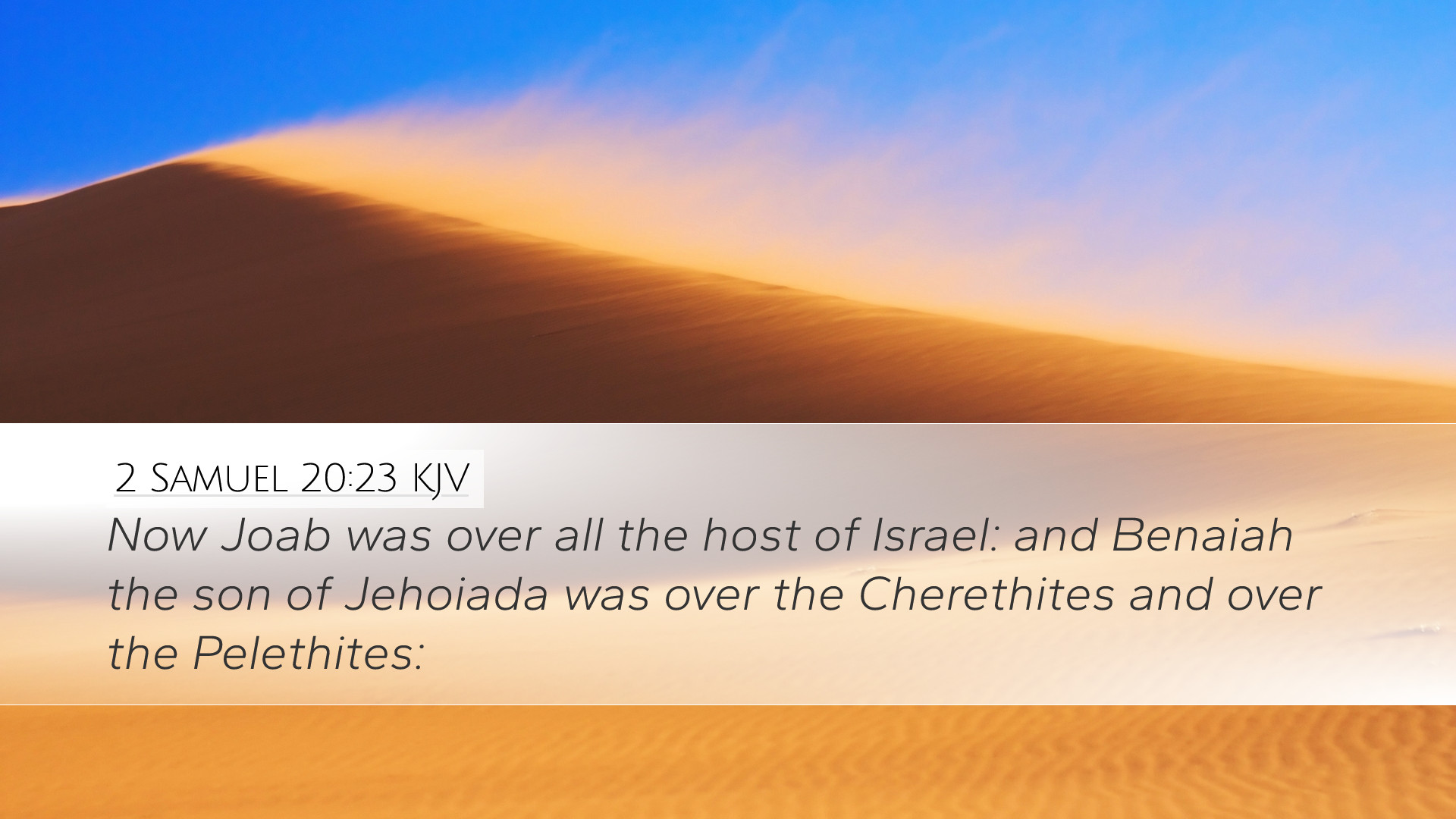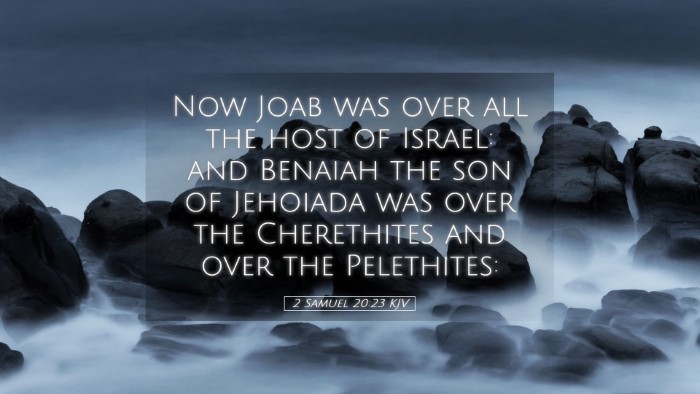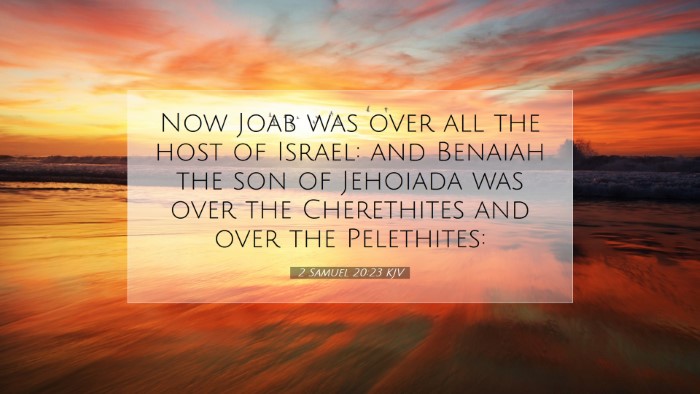Commentary on 2 Samuel 20:23
Verse Overview: 2 Samuel 20:23 states, "Now Joab was over all the host of Israel: and Benaiah the son of Jehoiada was over the Cherethites and the Pelethites." This verse succinctly reflects a pivotal moment in the administrative structure of Israel under King David.
Contextual Framework
To understand this verse, one must consider the broader narrative of 2 Samuel, particularly the political and military context during David's reign. The book encapsulates the transition from a fragmented tribal confederation to a united monarchy.
Leadership and Authority
This verse highlights Joab's prominent role as the commander over all Israel's army. His position suggests both the trust placed in him by King David and the formidable nature of his military capabilities.
- Joab's Military Prowess: Joab was known for his bravery and experience in battle, making him a central figure in David's military campaigns.
- Political Intricacies: Joab's influence also extended to the political landscape, where his decisions significantly affected Israel's trajectory.
Benaiah's Position and Significance
Alongside Joab, Benaiah's mention as the commander of the Cherethites and Pelethites symbolizes the diverse military leadership that served David.
- Cherethites and Pelethites: These groups are often interpreted as the elite bodyguards, indicating a layer of protection for the king and a reflection of David's reliance on loyal and effective men.
- Leadership Dynamics: Benaiah's role indicates that while Joab had overarching command, there were specialized roles within David's military, showcasing the organized structure present in Israel's army.
Thematic Insights
Faithfulness in Leadership
Both Joab and Benaiah exemplify different facets of leadership and loyalty within the biblical narrative. Joab, while effective, is also portrayed as flawed, showing that leaders can possess great strength yet still struggle with moral complexities.
- A Study of Joab's Character: Matthew Henry notes, "Joab acted with a mixture of zeal and ambition," reminding leaders to navigate between personal ambition and faithful service to God.
- Benaiah’s Integrity: In contrast, Benaiah’s portrayal as a man of valor and integrity serves as an ideal benchmark for leadership grounded in faith and loyalty.
Order in Governance
The clarity in Israel’s military hierarchy underlines the biblical principle of order and governance stemming from divine authority.
- Biblical Organization: Albert Barnes points out that the delineation of roles within the army acts as a metaphor for God’s order in creation and society.
- Implication for Church Leadership: The structure under David can serve as a model for modern church governance, reminding leaders of their responsibilities in maintaining order while fostering collaboration among team members.
Theological Reflections
God’s Sovereignty in Leadership
The appointments of Joab and Benaiah reflect a deeper theological understanding of God's sovereignty. Even in the presence of human failings, God's plan unfolds through the actions of His chosen leaders.
- Human Agency vs. Divine Providence: Adam Clarke discusses the balance between God's control and human action, emphasizing that leaders are placed in roles by divine providence, yet are accountable for their choices.
- Divine Endorsement: This verse assures us that God raises leaders and equips them for their tasks, affirming His governance over nations and individuals alike.
Lessons for Today’s Leaders
The modern church can draw from the dynamics illustrated in this verse about the qualities of effective leadership.
- Integrity and Accountability: Leaders should exhibit integrity and be accountable as modeled by Benaiah.
- Managing Ambition: Joab’s example teaches about the dangers of unchecked ambition and pride, crucial lessons for all in pastoral roles.
- Structuring for Effectiveness: The importance of structured decision-making and delegation can be a guiding principle for church governance.
Conclusion
2 Samuel 20:23 serves not only as a historical account but also as a rich source of theological and practical insights beneficial for pastors, students, and scholars. By examining the characters of Joab and Benaiah and the structure of leadership, we glean important truths about authority, governance, and the nature of God’s providence in human affairs.


